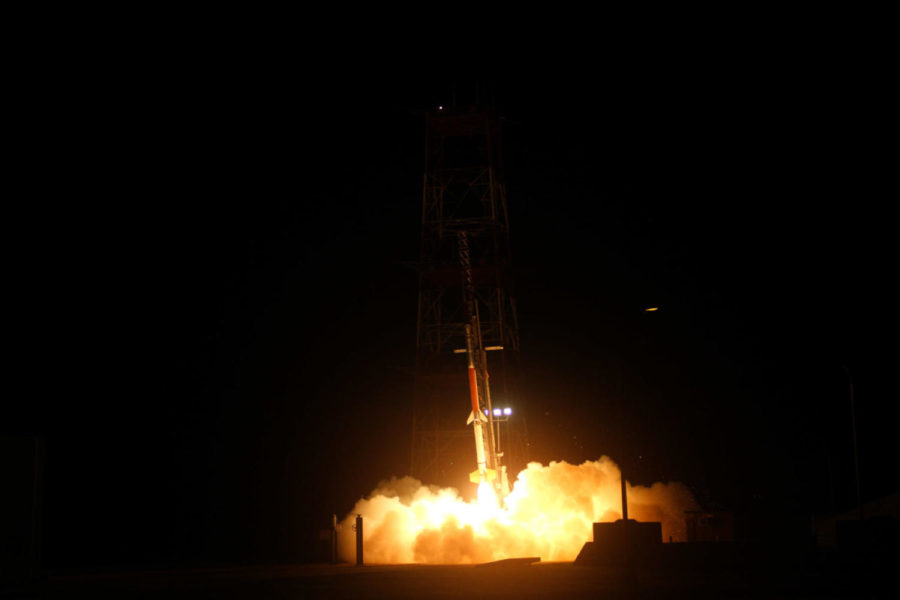UK students to leave mark on space with Friday rocket launch
March 22, 2018
UK students prepare to launch a full-scale reentry capsule into space this week after years of hard work.
For the past few years, UK students have worked on reentry spacecraft named KRUPS, or Kentucky Reentry Universal Payload System, contributing to research, design, building, testing and analyzing the project.
The project offers students hands-on experience outside the classroom across a spectrum of disciplines and is funded by both NASA and the Kentucky Space Grant.
In August 2017, UK students launched a compact subscale capsule from NASA’s Wallops Flight Facility in Virginia. While successful, the team was unable to recover useful data.
“We were able to use video footage to see what could be improved on for our next launch so that we can validate our entire system,” said Devin Sparks, a Masters of Science student in the Department of Mechanical Engineering and graduate student lead on the project.
This year’s launch will feature a full-scale capsule. Dr. Alexandre Martin, Associate Professor of Mechanical Engineering and project head, said that because last year’s capsule was compact, the center of gravity might have been off, resulting in the capsule’s tumbling and a lack of data. With this year’s full size, he feels confident the launch will yield much-needed data.
“There are much less uncertainties with this one,” he said.
Martin said he hopes to recover this year’s device and see how the atmospheric entry affected the materials and what the temperatures were. This information will be vital in the next stage of the project, allowing the team to validate heat shield modeling tools.
Friday’s launch, if successful, will propel the project into the next stage—orbital flights.
Once the device is ready for orbit, it will be significant for several reasons. With a functional re-entry device, the gap between earth and astronauts at the International Space Station would close considerably.
“We could have a fast sample return,” Martin said.
From running various tests too complicated for the ISS to saving an astronaut’s life through a blood sample sent to earth, the small reentry capsule could be monumental.
“We are all very excited to see how our adjustments impacted the experiment,” said Sparks, who has worked on the project since his senior year. “Being able to work on this project has been an amazing experience. No matter what the results, I am just happy to be involved in a project that looks to improve the future of science.”
Martin said he is looking forward to Friday.
“It’s always exciting to see a rocket launch,” he said. “It’s something you can’t really describe.”
The launch, originally scheduled for Thursday but delayed until Friday due to weather, will take place at NASA’s Wallops Flight Facility in Wallops Island, Virginia.
Martin said there is still a chance it could be delayed again as good visibility is needed for the recovery boats to find the capsule once it has returned to earth.
































































































































































